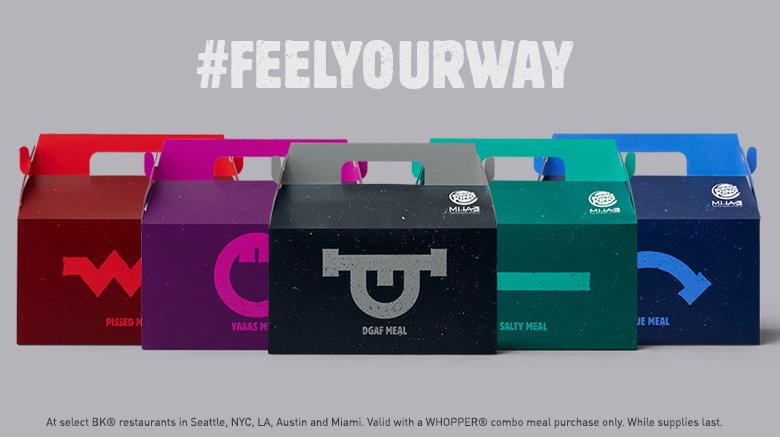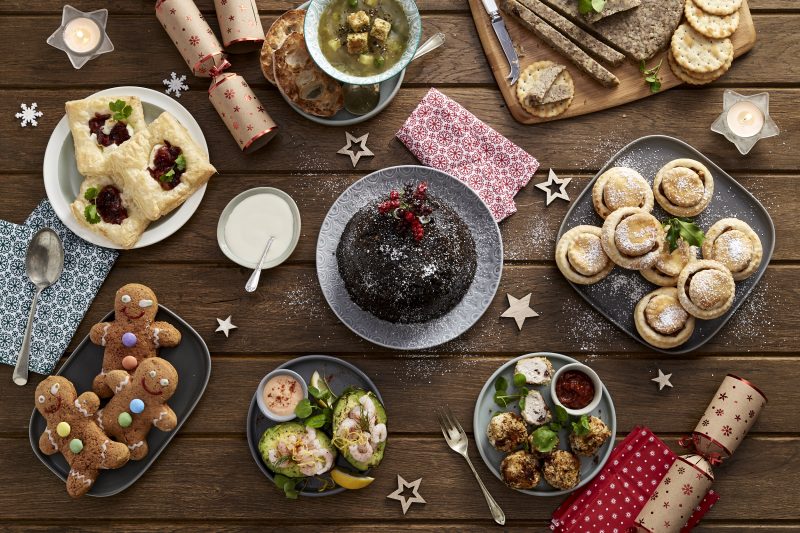Mental health is in the spotlight at the moment – and for all the right reasons.
May was Mental Health Awareness month, set up with the purpose of starting conversations to break down taboos and improve mental health. The Department of Health found in 2015 70 million work days were lost due to mental ill health. This makes mental ill health the UK’s leading cause of sickness absence.
Making Mental Health Matter
So with mental health being discussed and understand better than ever, how is the food industry responding?
As increasingly important as mental health is to modern customers, it’s a very different type of opportunity for the industry. It’s not simply a marketing band-wagon to jump on, but a social responsibility on the part of the industry. There have been accusations of shallow marketing of mental health to merely increase company profits. Consumers are looking for more to brands than just a simple sale.
Consumers look for brands who want to make an impact, who are genuinely engaging, and make an honest connection.
Burger King’s “Real Meals” camping, a twist on the traditional “Happy Meals” concept, made an impact in the market. If nothing else, it sparked conversation! Partnering up with Mental Health America, Burger King released a range of five meal boxes to suit various states of mental ill-health. The options included ‘Blue Meal’, ‘Salty Meal’, and ‘DGAF Meal’, accompanied by the slogan “No one’s happy all the time. And that’s OK.”

McVitie’s also partnered with Mind this May to address awareness within the UK. Over four million packs of McVitie’s biscuits were sold in aid of Mind as part of this charity partnership. McVitie’s also donated £150,000 to support Mind’s Time to Change campaign. The donation contributed to funding eight “Time to Change” hubs and training for four hundred volunteers.

Quest for Community
One aspect of mental ill health is the feeling of isolation, where sufferers can feel dislocated from their immediate community, friends and family.
TUCO recently released a report on student wellbeing and campus food (‘Hospitable Campus: Foodservice Management and Student Wellbeing’). The report concluded that “the power of good food… can help promote a sense of inclusion, community and belonging.”
The wellbeing that can be nurtured by company and food isn’t just restricted to students – we can all benefit!
Through borrowed nostalgia and multiculturalism within the UK, there have never been more options for event and community eating. Christmas, New Year and even the odd cheeky Eurovision party are old favourites for social eating – some things never change! Easy access of ingredients and recipes, alongside increased multicultural awareness, has made Chinese New Year, Holi and Divali much more accessible to the UK market. This accessibility makes it easier for easy cooking and socialising over food.
Even an American favourite is poised to grow in popularity, especially off the band wagon of mindfulness. Yes, we’re talking about Thanksgiving! What seems at first as the wild card of community building food occasions, Thanksgiving may not be such an oddity. Mindfulness of things to be grateful for, an opportunity for a large meal with friends and family, and sparking feelings of hygge a month before Christmas all count in Thanksgiving’s favour. So Thanksgivign may become a staple for community building and mental recharging – always a good excuse to have a fantastic feast!

Sharing Surplus
In a world of apps, there is even a way that people can connect over food and help in the war against waste. Saasha Celestial-One and Tessa Clarke launched their business, Olio, which works to connect “people who want to share food that would otherwise go to waste”. The idea behind the app is that food going to waste can be advertised and then collected by another user. Not only do you meet your neighbours, but you also save surplus food from thew bin! The app is currently used in 46 countries and has more than 900,000 users.
As mental health becomes more accepted, the food industry needs to keep up to date with consumer’s needs on this very important topic. Be it through fortification, engagement, or comfort, food plays an important part in the world’s mental health. Awareness can only grow in this digital age – and the industry needs show genuine engagement and understanding of mental health to remain relevant and trusted.



